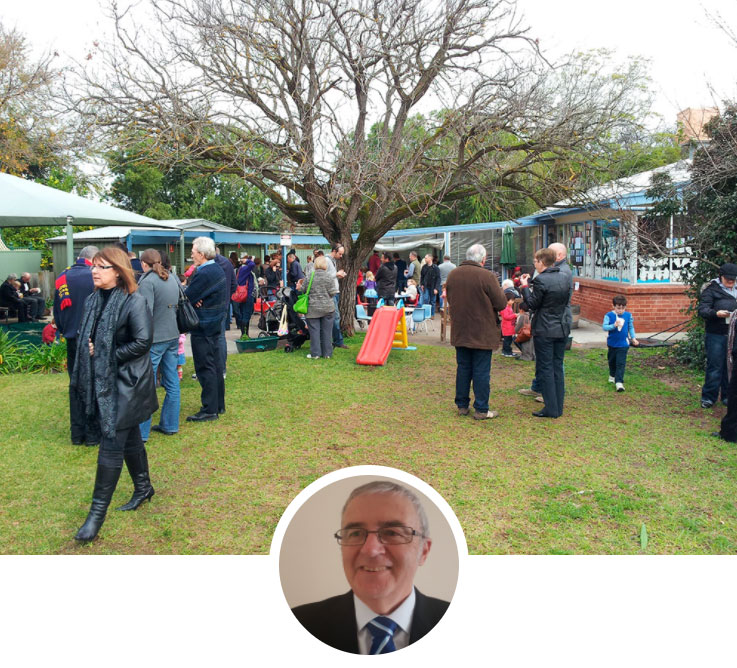After about 2 hours of debate the Council agreed to enter into an Indigenous Land Use Agreement (ILUA) with Kaurna Peoples native title claimants, and 27 other councils.
An ILUA is an agreement to facilitate the requirements of the Native Title Act 1993 about the use and management of land and waters made between people who hold, or may hold, native title in the area, and other people, organisation or governments.
The Kaurna ILUA has been developed by a Local Government Association coordinated leadership group, representing metropolitan councils and some adjoining country councils which cover the geographical area of the Kaurna peoples, and representatives of the Kaurna Yerta Aboriginal Corporation (KYAC) and the Kaurna Nation Cultural Heritage Association Incorporated (Heritage Association); over I believe a 6 year period.
This is a complex document designed to create a respectful protocol and procedures for addressing native title claims as and when they arrive. It is also designed as I understand it to bring certainty to the cost of processing any claim.
Claims already processed under the Native Title Act have been (for want of a better word) clumsily processed with costs not controlled. The potential is, as I see it and from what I have heard, that any one claim if there is no procedure to place parameters on the process and cost could cost a public utility such as a council beyond their means.
In what I felt was a no brainer, debate last night was strong land questions about legalities were prominent.
A number of councilors were under the impression that this agreement will open up the way for claims rather than being (as I indicted earlier) a facilitator for claims that can and will be made under the Act as it stands. Claims can be and have been made under the Act. The land use agreement does not change this.
Equally there were many that saw flaws in the legalese used in the document. Of course we would know more than those (including lawyers) who have been working on it for 6 years. It is to be expected that we would ask a number of questions, but for a time there, there appeared to be a resolve to rewrite the document on the night, having only been aware of its contents for less than a week.
We even debated that this would facilitate claims on private properties and that we should therefore take it out to the public for consultation before making a decision. This in-spite of being advised that the Native Titles Act extinguishes native title where the property has already been developed. Of course this also ignored the fact that it is the Native Title act that would facilitate such a claim, not the Land Use Agreement.
It was a confusing night to say the least, and we went off on tangents often. I have to say I am still trying to get a grip on what happened.
In the end I believe the right decision (vote 6 to 5) was made, a decision to be part of a process that will make addressing claims easier and more respectful and one that will restrain the cost of processing the claim.

Well said Don. Roger
Don, why were we not consulted before council made the decision. I have no idea of the impact of a native title claim on my property. It just seems so rude that the council decided to not consult its community. At other times Unley talks about its great effort in local consultation. On this matter, I suspect for political reasons Council decided to deliberately stay quiet.
I’m disappointed with Council’s behaviour on this matter.
I apologize for not having been clearer in my communication.
This agreement I understand does nothing more than provide controls over the process and cost on claims that may be made against us. The agreement seeks to provide certainty for all parties to the agreement in the event of a claim.
It does not trigger or initiate claims. The Act does that. If consultation was ever needed it would have been at the introduction by the Federal Government of the Act. It therefore does not expose anyone to anything. It protects them.
If I can use an analogy it is indeed no different to setting up standard contracts for the execution of civil engineering projects under taken by the City of Unley. I am sure most ratepayers would agree we need to have contracts so that when a project goes belly up we have some protection. This is exactly the same and we have not been requested to involve our ratepayers when setting up the various contracts we have.
As with a Civil contract this agreement is a complex and legal document. As I hoped I had established in my blog post (and clearly have not) I simply do not believe elected members have the necessary skill, qualifications or experience to seriously challenge 6 years of work by a panel who had the expertise of a person with appropriate legal qualifications to draft it.
If I believe that then I certainly cannot agree that it should have gone out for consultation. I am sure of this. If it had it would probably take 60 years to get an agreement acceptable to all, if ever.
Sorry but there are some things to consult over and some that should not, and this is one that should not.